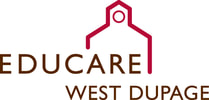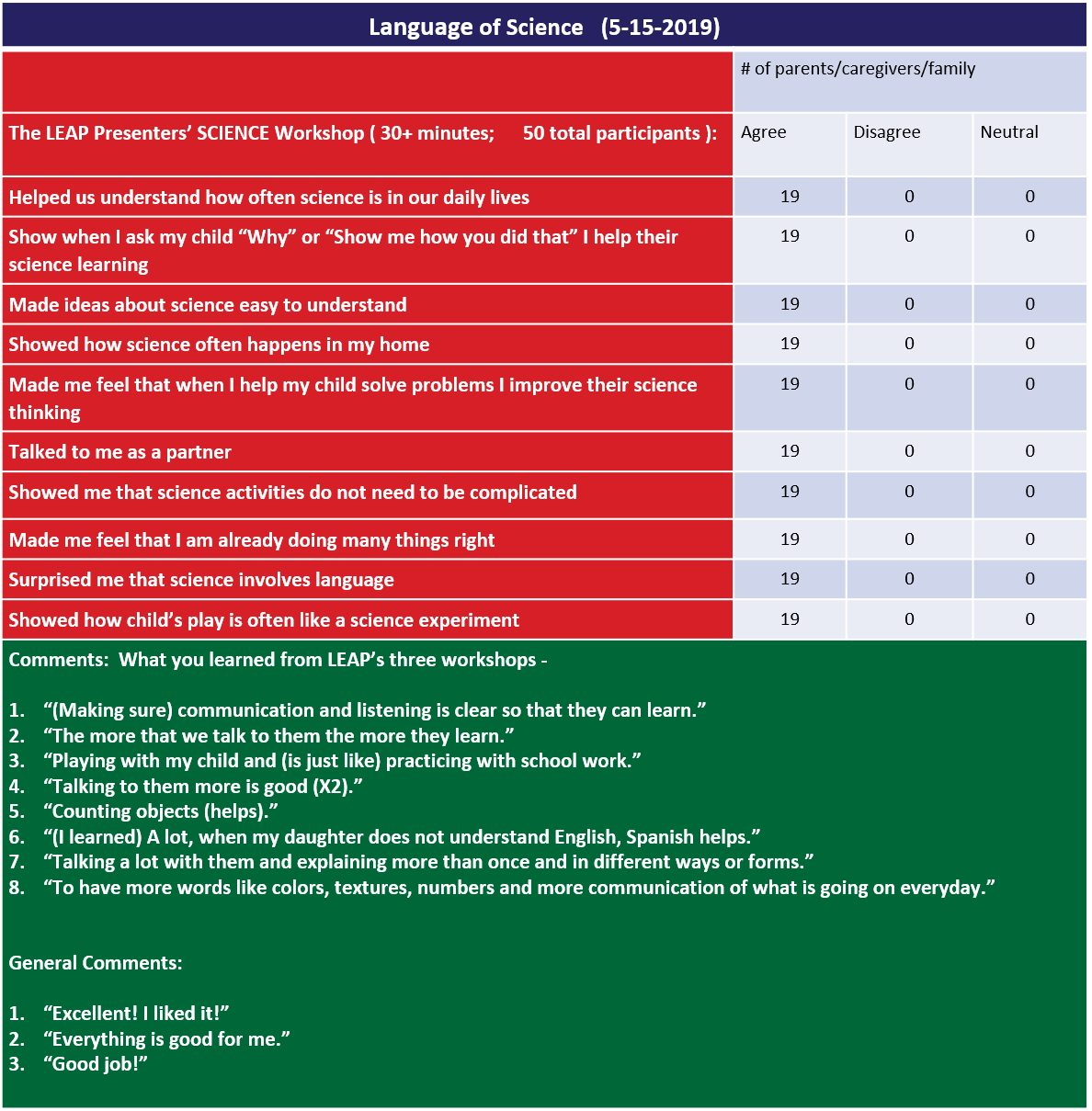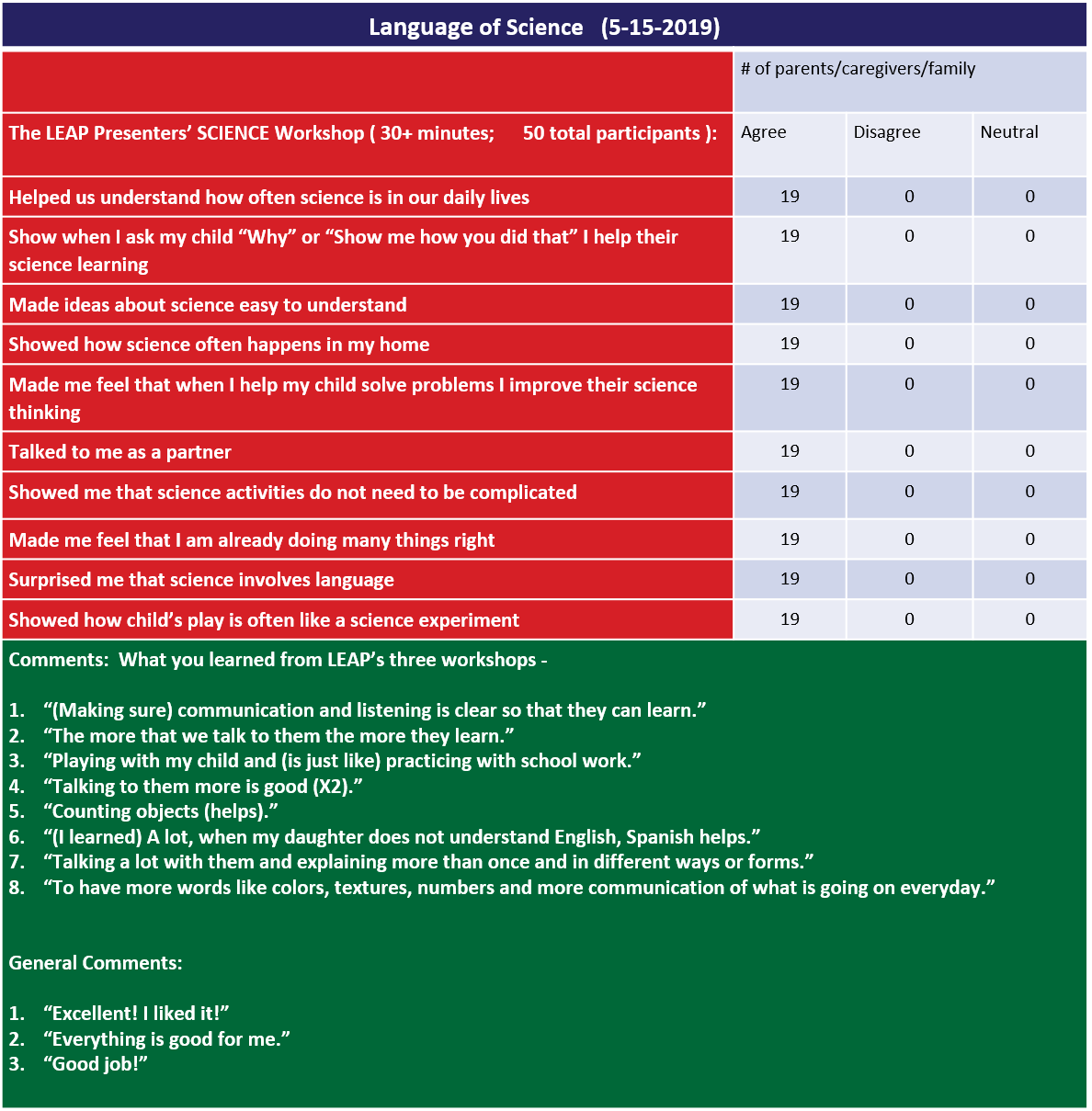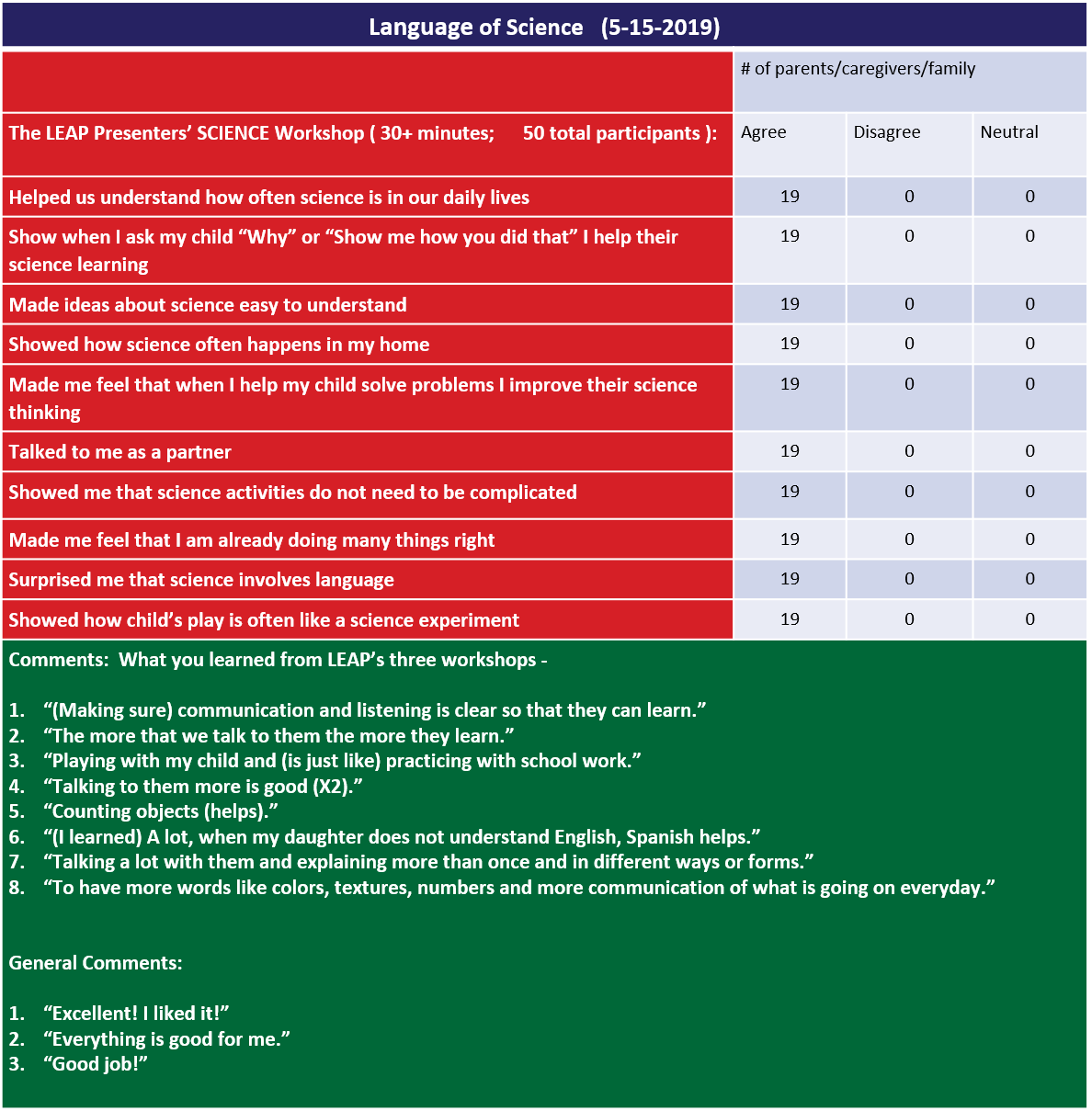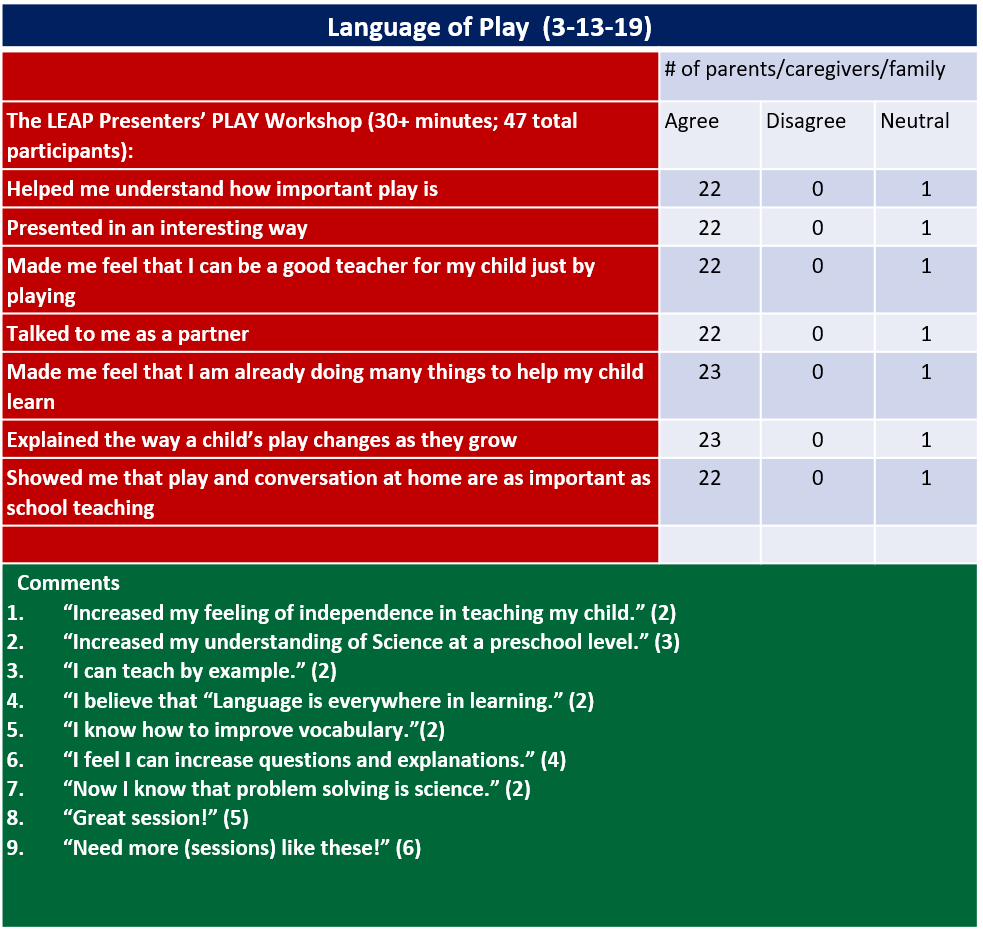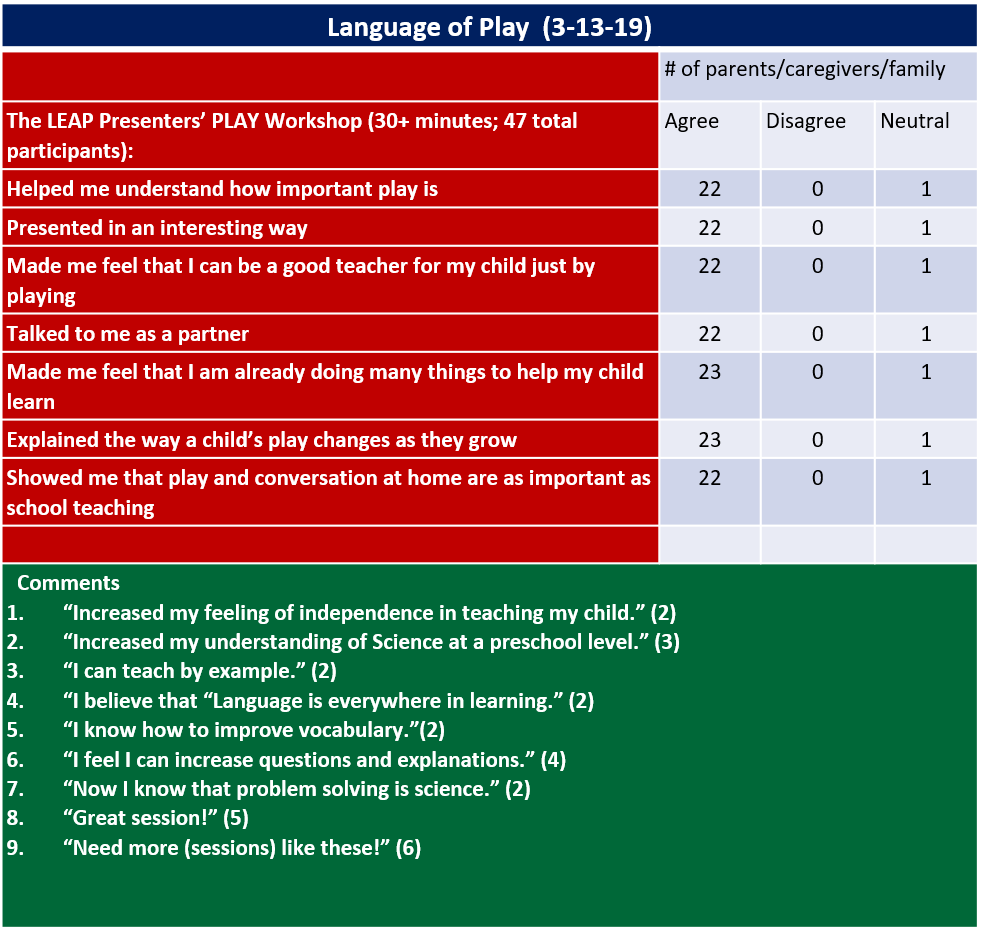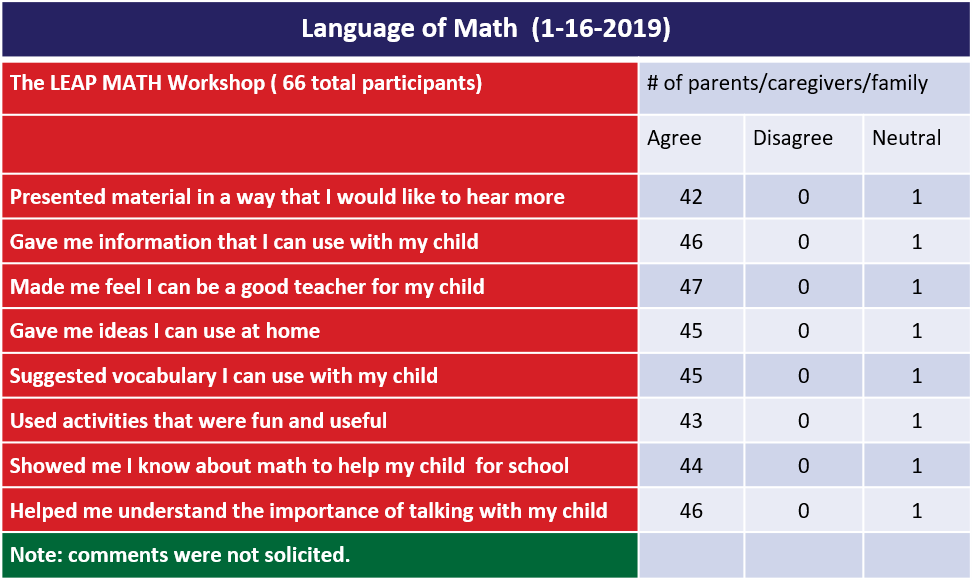Parents Teach Everyday
Educare West DuPage is one of twenty-six high-quality early childhood schools which comprise the Educare Learning Network, a nationally recognized collective of evidence-based centers focused on preparing under resourced Infants and toddlers for success in kindergarten and beyond. Funded with federal Early Head Start and Head Start dollars, state and local public resources and philanthropic support, the Educare Learning Network Is affiliated with the Ounce of Prevention Fund, the preeminent early childhood research, program and advocacy organization in the United States.
As is the case with all of LEAP’s program efforts, the pilot at the Educare West DuPage consisted of a series of three workshops for teachers and parents focused on increasing and sustaining the frequency and quality of language exposures between parents and young children in the home as well as with infant and toddler teachers and classrooms. These language experiences frame and support other learning in children’s lives, enabling them to communicate with others and use language as a framework for memory, new learning, academics and thinking skills.
All language knowledge developed in the first five years carries forward to future kindergarten through high school academics, young-adult executive functioning, and critical life social and emotional skills. The LEAP presentations are characterized by being interactive, respectful of the listener, and intensive regarding learning outcomes. Teaching strategies include demonstrations, hands-on activities, conversations and at-home examples that invite teacher- and parent learning relationships with LEAP presenters.
From a range of research-based curricula, the Educare West DuPage staff selected the following three subject areas: 1) the Language of Math,; 2) the Language of Science; and 3) the Language of Play. LEAP developed half-hour presentations for teachers, family engagement specialists and the parents of children in their classrooms. While all LEAP presentations are research-based, and the discussions nonetheless always relate to the daily needs of the professionals and parents interacting with children. The take-aways of each area can be summarized as follows:
1. Early Math: verbal and nonverbal comparisons of quantities, reduction/addition concepts, sharing, accumulating and changes in quantity over time. Parents can be primary resources for their children’s early math development using language of quantities, combining, and reducing in their homes.
2. Early Science: verbal and nonverbal problem solving by using concepts of tracking, combining, reduction/addition, comparing, tallying, observation of change, and combining materials of similar or different properties. Parents readily realize that they do science experiments in their daily life, and also use the language of experimentation with their children to develop solutions and solve problems.
3. Early Play integrates concepts of early math and science with the socio-linguistic skills to move from concrete to imaginative interactions with other children and materials in their environment. Parents’ enjoyment in play with their children builds concepts for story making, predictions, and imagination.
Note that each of the bolded outcomes above help prepares young children to become ready to learn prior to entering kindergarten.
In each of these workshops parents and their everyday home lives are valued as resources to do the following:
1. Provide interpersonal interactions and materials;
2. Encourage and reinforce a variety of experiences; and
3. Provide commentary and suggestion to increase the complexity, linguistic framework and expansion of children’s home experiences.
We fully appreciate that teachers and caretakers have the internal resources that are valuable and continuing learning guides for their children, preparing them for reading and other formal learning experiences beginning in kindergarten.
The LEAP workshops were extremely well received by teachers, parents and family engagement specialists at Educare West DuPage. Feedback from senior school leaders and administrative staff indicated that teachers welcomed the information presented, the presentation style and the workshop take-aways. Parents and teachers also indicated great appreciation for the simultaneous translations and bilingual print materials during each session.
LEAP presented to parents—who were accompanied by other children from their families — in the half-hour before the end-of-day. Following the workshop, parents and their children participated in workshop related activities lead by teachers in their child’s classroom. Parents and children universally paid close attention to discussion and demonstrations; the LEAP presenters met the needs of parents and their children with highly engaged, enthusiastic presentation of content and materials. During each session, volunteers were successfully encouraged from the, supporting the enthusiasm and engagement of the listeners.
Parents completed surveys after each workshop. Survey instruments were provided in both Spanish and English, with parents’ choice in completing in either language. Answers from each group were similar (I.e., within two- to-three percentage points of agreement) that they are presented together. Responses for the Math, Science and Play Workshops were overwhelmingly positive.
LEAP ensured that information mapped to participants’ needs and interests, avoiding unnecessary technical or research details that might distance presenters from participating family members. Moreover, participants in each workshop consistently felt invited, participatory, and confirmed they received real life tools to use with their children. By appealing to the parents’ background knowledge, LEAP staff empowered parents, caretakers, and teachers to feel competent in the three selected topic areas with their children.
LEAP’s work is framed for parents and staff research-based, with available support documents.
The survey data support observations and later commentary by teachers and staff, namely, that the information on Language and Math, Language and Science, and Language and Play was well received. For each session, over ninety percent of respondents responded positively to workshop content based on survey results and indicated that they would like further presentations focused on ‘“hands-on’” experiences. Given the number of parents responding (ie, more than fifty of the participating adults ), there was strong interest in future demonstration opportunities.
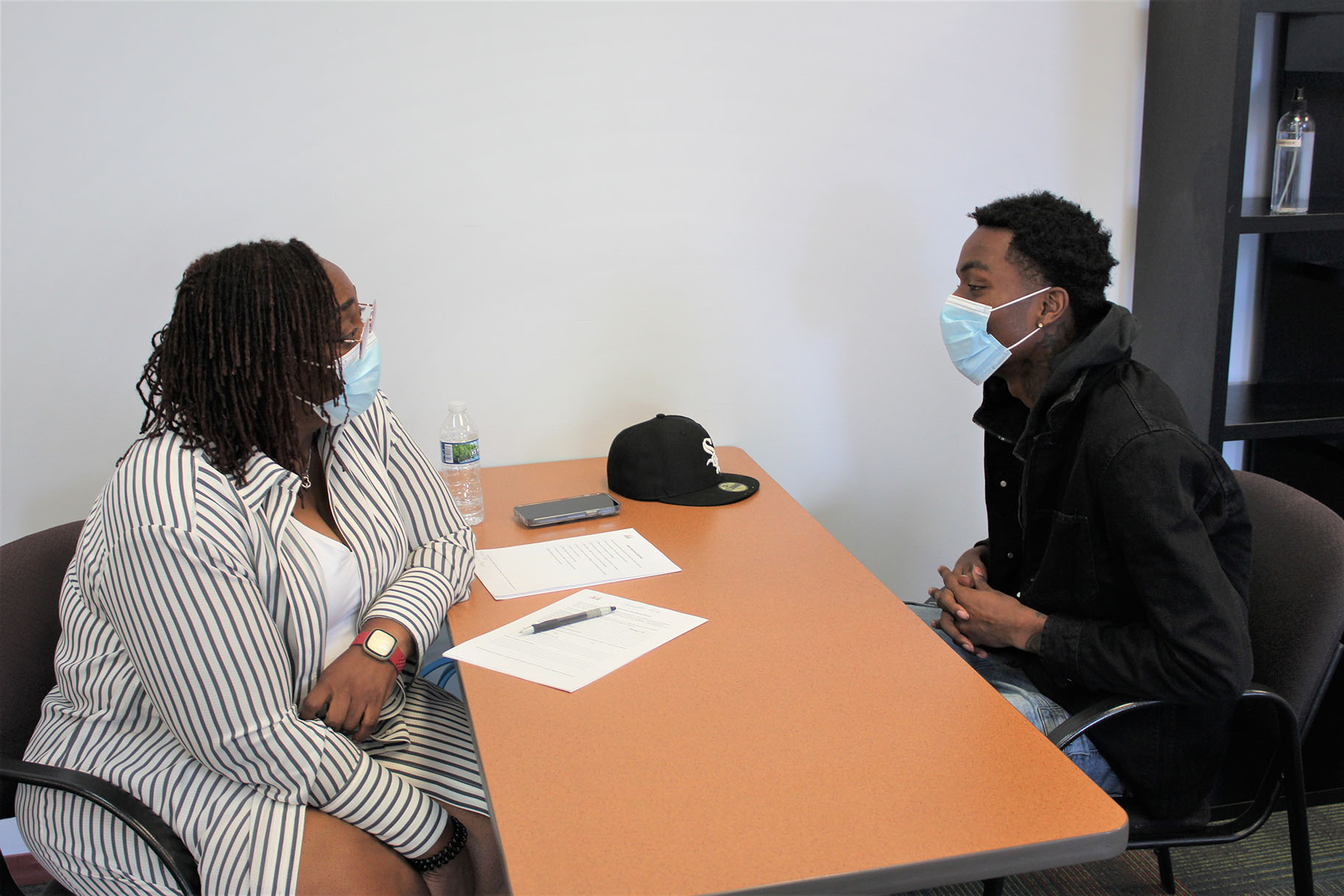

References:
Hirsh-Pasek, K., Adamson, L., Bakeman, R., Owen, M., Golinkoff, R., Pace, A., Yust, P., & Suma, K. (2015). The contribution of early communication quality to low-income children’s language success. Psychological Science, 26(7), 1071-1083.
This article examines the relative contributions of the quality of early parent-child communication and the quantity of language input in low-income families. Indicators of quality were “considerably more potent predictors of later language ability than was the quantity of mothers’ words during the interaction or sensitive parenting.” The researchers point out that interventions addressing the word gap require attention to how parents and children establish communication foundations within low-income homes.
Hoff, E. (2003). The Specificity of Environmental Influence: Socioeconomic Status Affects Early Vocabulary Development Via Maternal Speech. Child Development, 74(5), 1368-1378. doi:10.1111/1467-8624.00612
The study sought to identify which aspects of SES influences productive vocabulary development in children. Properties of maternal speech that varied as a function of SES fully accounted for differences in productive vocabulary size difference. Therefore, maternal speech acted as a mediating variable. This further bolsters research that children from advantaged homes have more advanced language skills than those that come from low and even mid-SES homes. This is only one pathway through which child language acquisition is impacted, but an important one nonetheless.
Horrigan, J. B., & Duggan, M. (2015, December 21). Home Broadband 2015. Retrieved March 29, 2016, from http://www.pewinternet.org/2015/12/21/home-broadband-2015/#
While traditionally many adults have broadband internet connectivity at home, more individuals rely on smartphones for online access than in previous years. This is especially true in African American populations, those with relatively low household incomes, and those living in rural areas. With this “smartphone-only” connection to the internet, individuals are challenged with the limitations that are part of being smartphone-reliant. Those that are smartphone-dependent may face data-cap limits, more frequently have to cancel or suspend service due to financial limitations, and cannot access certain resources on a phone that they would be able to with broadband on a computer (e.g. filling out job applications, word processing software).
Justice, L. M., Chow, S. M., Capellini, C., Flanigan, K., & Colton, S. (2003). Emergent Literacy Intervention for Vulnerable PreschoolersRelative Effects of Two Approaches. American Journal of Speech-Language Pathology, 12(3), 320-332.
The phrase “emergent literacy” encompasses to more than what is traditionally referred to as pre-literacy or reading skills. The foundation for literacy requires both written language awareness and phonological awareness. Justice and colleagues highlight how the socioeconomic status of a household impacts the language environment that the child is exposed to. Oral language proficiency, and therefore emergent literacy development, is strongly mediated by the frequency with which children are exposed to language and literacy at home, in school, and around the community, both formally and informally. This is often the case in low-SES households, which can contribute to low levels of emergent literacy skills and the foundational language skills that support it in the children of these homes. This further supports the efforts of Beginning with Babble with the focus on oral language skills to support later literacy.
Vallotton, C., & Ayoub, C. (2011). Use your words: The role of language in the development of toddlers’ self-regulation. Early Childhood Research Quarterly, 26(2), 169-181.
Previous research has explored the relationship between language abilities and self-regulatory skills in children. These two domains are correlated; vocabulary is a strong predictor of self-regulatory skills, even as young as two years of age. Talkativeness was also positively related to children’s self-regulation, when maternal language behavior was controlled for. In fact, language skills support self-regulatory behaviors, even when children’s cognitive abilities are accounted for, showing language has a unique and positive impact on self-regulation throughout the early years

